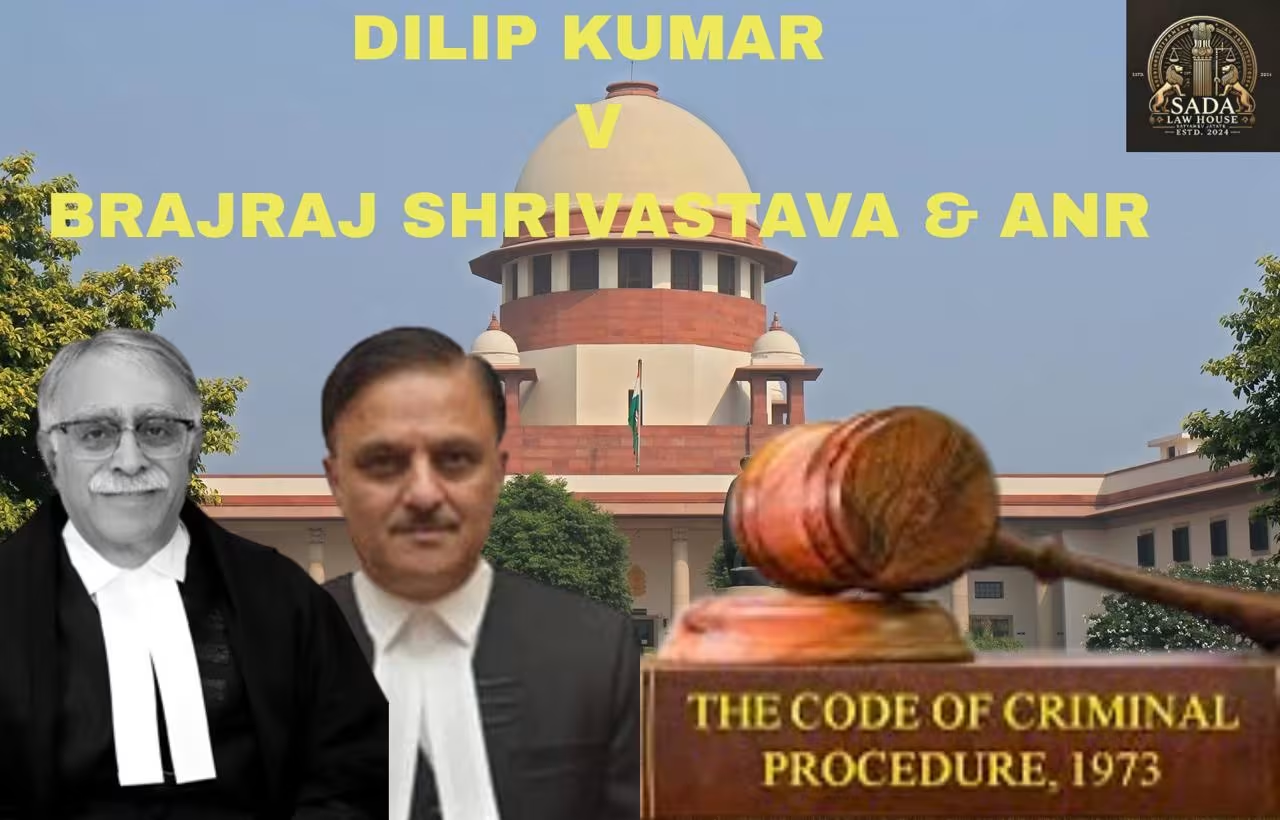Dilip Kumar v. Brajraj Shrivastava & Anr. (2023): Supreme Court Clarifies Magistrate’s Duty Under Section 202(1) CrPC
- REHA BHARGAV
- Sep 29, 2025

Introduction
The case of Dilip Kumar v. Brajraj Shrivastava & Another, decided by the Supreme Court of India on 26 July 2023, addressed the scope of a Magistrate’s duty under Section 202(1) of the Criminal Procedure Code (CrPC).
The key question was whether a Magistrate, after opting to conduct an inquiry under Section 202(1), can dismiss a complaint under Section 203 CrPC without examining all listed witnesses—or at least providing reasons for not doing so. This case reinforces procedural fairness and due process in the preliminary stages of criminal litigation.
Facts of the Case
Background
Appellant: Dilip Kumar
Respondents: Brajraj Shrivastava & Another
The appellant filed a private complaint alleging multiple offences under Sections 323, 342, 500, 504, 506, 295-A, 298, and 427 of the Indian Penal Code (IPC).
Key Developments
The complaint named eight witnesses in support of the allegations.
The Magistrate invoked Section 202(1) CrPC, as the accused resided outside his jurisdiction.
However, only the complainant’s statement was recorded. None of the eight witnesses were examined.
The Magistrate dismissed the complaint under Section 203 CrPC, citing insufficient grounds.
The appellant challenged the dismissal, arguing it was procedurally flawed.
Legal Issues
Is it mandatory for a Magistrate to examine all witnesses listed in the complaint under Section 202(1) CrPC before dismissing it under Section 203 CrPC?
Does the failure to record statements of named witnesses—or to give reasons for not doing so—render the Magistrate’s order unsustainable?
Arguments by Parties
Appellant’s (Dilip Kumar) Arguments
Mandatory Examination: Once Section 202(1) is invoked, all listed witnesses must be examined unless the Magistrate records reasons for not doing so.
Incomplete Inquiry: Recording only the complainant’s statement is a procedural defect.
Violation of Due Process: The Magistrate’s failure deprived the appellant of the opportunity to establish a prima facie case.
Relief Sought: Setting aside of the dismissal order and fresh consideration of the complaint.
Respondents’ Arguments
Discretion of Magistrate: The Magistrate has discretion to decide the extent of inquiry under Section 202.
No Prima Facie Offence: Even the complainant’s own statement did not justify issuing process.
Not Legally Mandatory: Examination of all witnesses is not compulsory unless found necessary.
No Miscarriage of Justice: The order was based on application of judicial mind and hence should stand.
Supreme Court Judgment
Bench:
Justice Sanjay Karol
Justice Abhay S. Oka
Key Observations
Mandatory Inquiry Compliance:
When a Magistrate proceeds under Section 202(1), it is mandatory to examine all listed witnesses or record reasons for not doing so.
Defective Inquiry:
In this case, the Magistrate failed to examine any of the eight named witnesses and gave no explanation for the omission.
Illegal Dismissal:
The Supreme Court ruled that the dismissal under Section 203 CrPC was procedurally defective and thus unsustainable in law.
Remand to Magistrate:
The matter was remitted back to the Magistrate for fresh consideration, with clear directions to follow the procedure under Section 202(1).
Conclusion
The Supreme Court of India, in Dilip Kumar v. Brajraj Shrivastava & Anr., reaffirmed the mandatory nature of procedural safeguards during the preliminary inquiry stage of criminal complaints. The ruling clarifies that a Magistrate cannot dismiss a complaint under Section 203 CrPC after initiating an inquiry under Section 202(1) without examining all listed witnesses or giving valid reasons.
This landmark judgment strengthens the principles of natural justice, due process, and judicial accountability, ensuring that complainants are given a fair chance at the outset of criminal proceedings.
Case Laws






